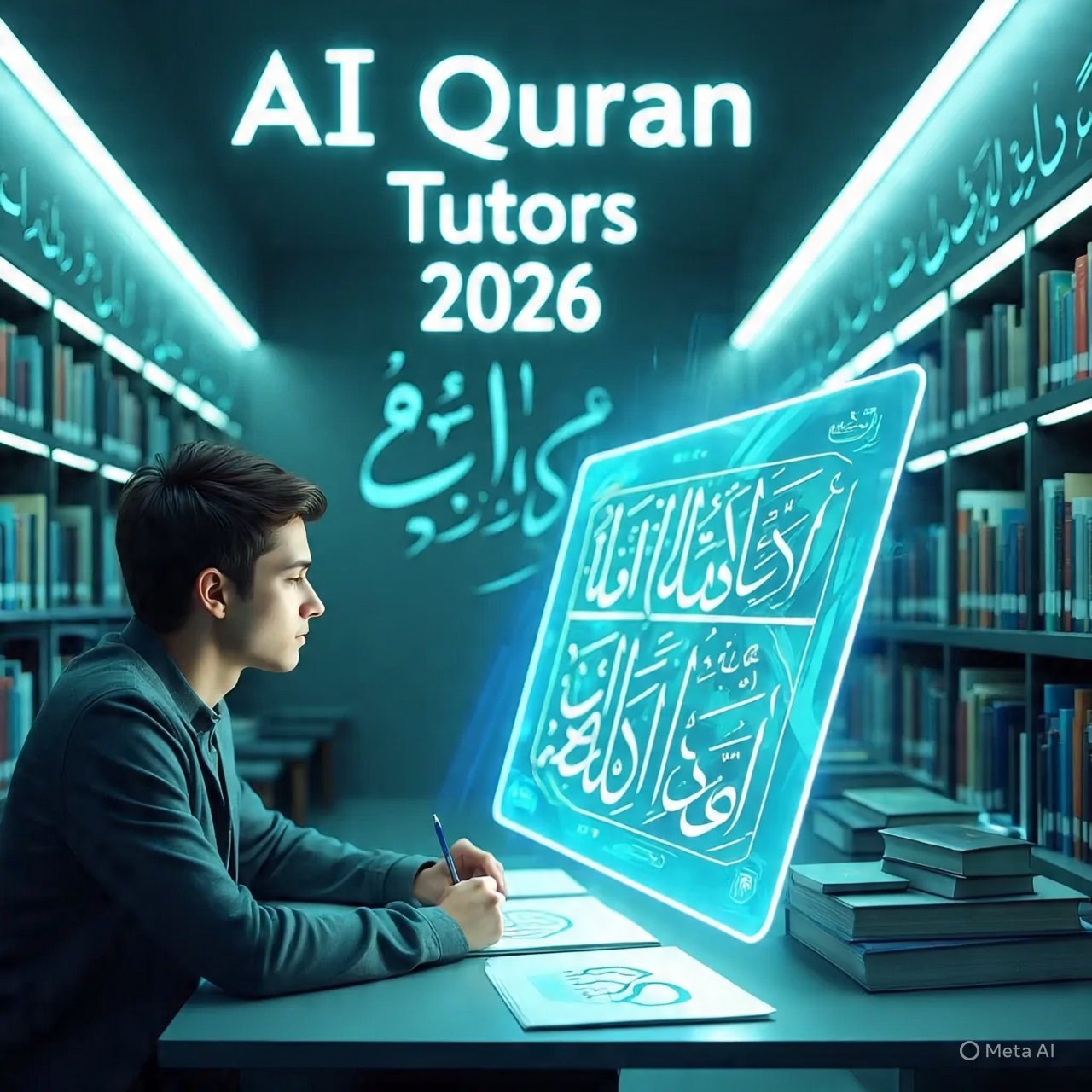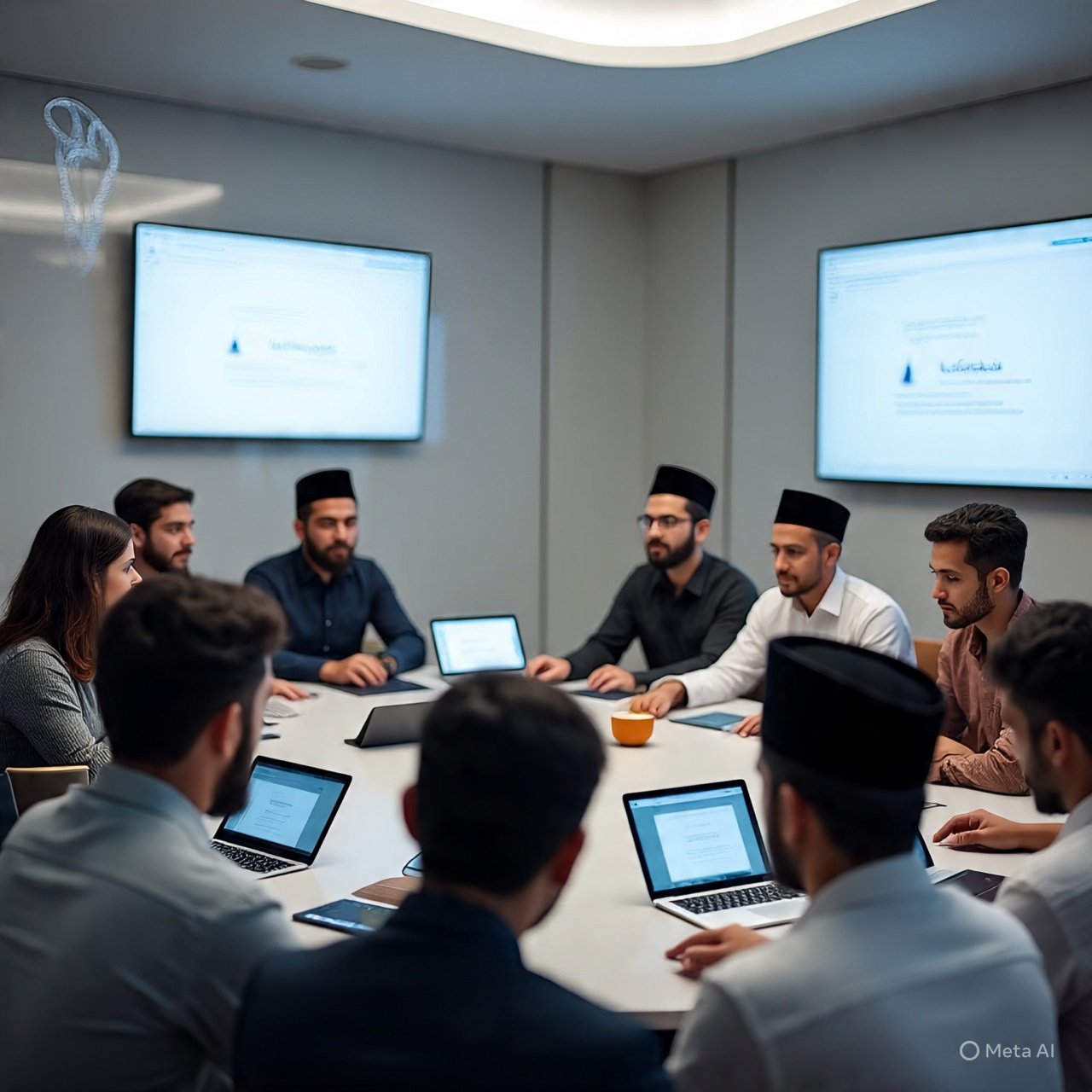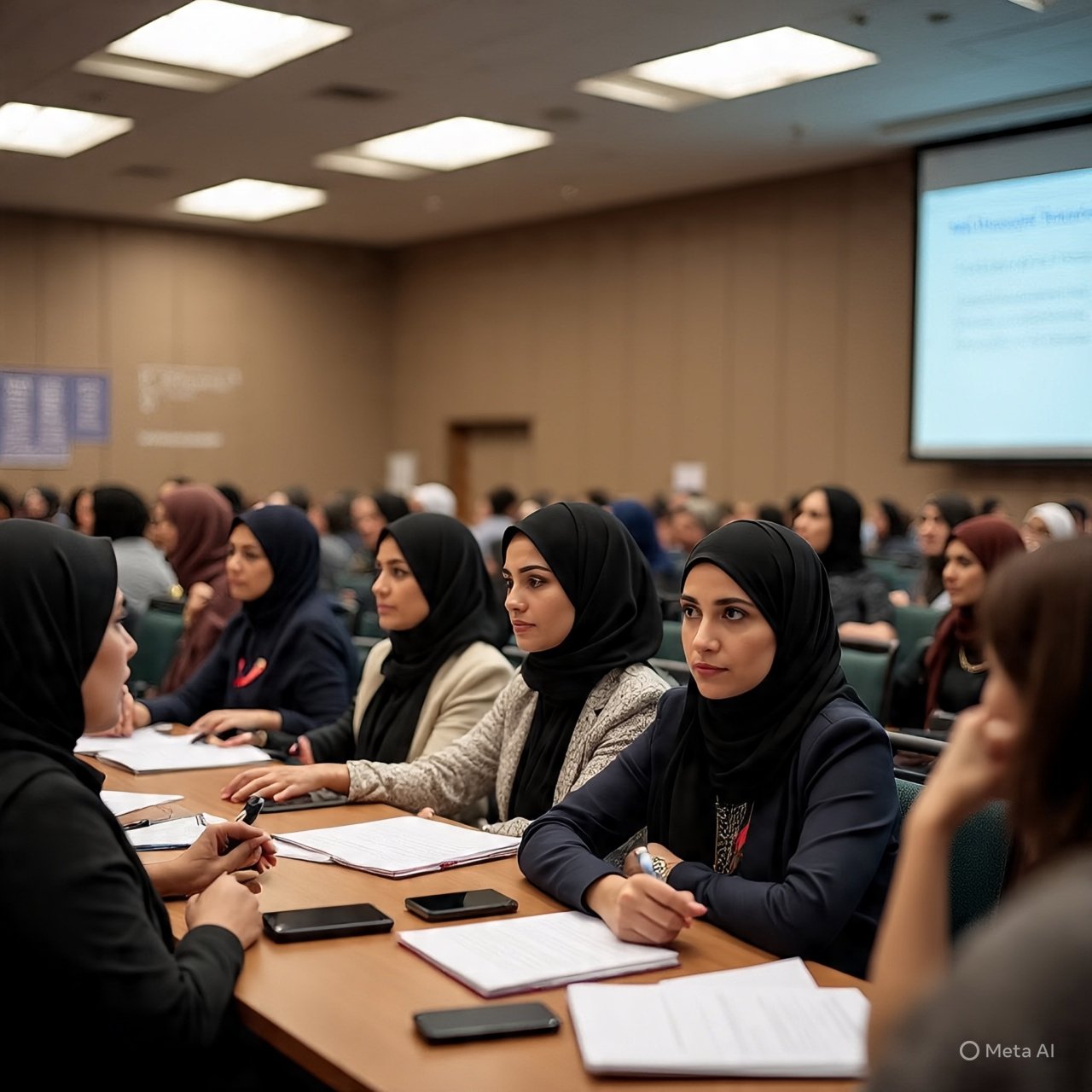AI Quran Tutors 2026: Digital Revolution in Islamic Education
Introduction
Artificial intelligence has revolutionized the field of religious education, especially in the sector of Quranic education. By 2026, AI Quran tutors have not only transformed the traditional methods of Tajweed and Tafsir but are also providing a personalized educational experience for every user. This article will cover the jurisprudential aspects, Sharia status, and educational implementation of these modern AI technologies. We will see how these technologies are giving modern shape to the ancient duty of Quranic education, and will also analyze their educational, ethical, and social impacts.
AI Revolution in Quran Education: New Era, New Possibilities
AI Quran tutors have initiated a new era in the field of religious education. This system not only teaches the rules of Tajweed but also provides educational material according to each student’s personal needs, learning pace, and level of understanding. AI algorithms continuously review each user’s educational journey and make changes in educational strategy based on it. From a jurisprudential perspective, this system is exactly according to the Islamic principle of “Al-Tadreej fil-Ta’leem” (gradualism in education), in which a step-by-step procedure is adopted for acquiring knowledge. Modern AI systems analyze the user’s pronunciation, understanding, and memory capabilities through deep learning algorithms. This system understands the complex rules of Arabic language with the help of natural language processing (NLP) and presents interpretation in the user’s native language. Through computer vision technology, it analyzes the user’s facial expressions and body language, which helps estimate to what extent the user is understanding the lesson. All this data is processed in real-time and causes immediate changes in educational material.
Personalized Educational Experience: Customized Solution for Every Student
AI Quran tutors create an individual educational experience for every user. This system prepares educational material considering the user’s age, academic background, learning style, and objectives. From a jurisprudential perspective, this reflects the principle of “Mura’at al-Khawas” (consideration of special circumstances), where each individual’s personal needs and circumstances are taken into account. Through adaptive learning algorithms, this system understands each user’s learning pattern and adjusts the difficulty level of educational material accordingly. For example, if a user is feeling difficulty in specific rules of Tajweed, the system automatically presents additional exercises and explanatory videos. This system also prepares schedules according to the user’s time availability, educational goals, and personal preferences. Through personalized learning paths, every user gets guidance according to their individual needs, which brings significant improvement in educational performance.
Modern Tajweed Education System: Traditional Principles, Modern Means
AI Quran tutors are establishing the Tajweed education system on modern lines. This system analyzes the user’s pronunciation, identifies errors, and provides immediate guidance for their correction. From a jurisprudential perspective, this strengthens the Islamic concept of “Itqan al-Amal” (excellence in work), especially regarding accuracy in Quranic pronunciation. Through advanced speech recognition technology, this system analyzes the user’s pronunciation and matches it with standard Arabic pronunciation. Through real-time feedback system, the user is immediately told to what extent their pronunciation is correct. Complex rules of Tajweed are simplified through visual aids and interactive diagrams. This system also analyzes the user’s voice pitch, tone, and rhythm, which improves Quranic recitation with Tajweed.
Tafsir Comprehension Methodology: Appropriate Explanation for Every Level of Understanding
AI Quran tutors are also performing important services in the field of Tafsir. This system presents explanatory material according to the user’s level of understanding, which includes users from beginner to advanced level. From a jurisprudential perspective, this is the modern form of the Islamic duty of “Tafheem al-Deen” (understanding of religion). Through natural language processing, this system analyzes different Tafsirs and presents simplified explanations according to the user’s level of understanding. Historical and contextual aspects of verses are understood through contextual understanding algorithms. This system also provides automated answers to users’ questions, in which evidence from different academic sources is presented. Quranic events are presented in visual form through interactive maps and timelines, which facilitates understanding.
Electronic Monitoring System: Continuous Assessment and Improvement
AI Quran tutors continuously monitor the user’s performance and make changes in educational strategy based on it. This system keeps a detailed record of the user’s progress and provides future guidance based on it. From a jurisprudential perspective, this is close to the Islamic concept of “Al-Muhasabah” (accountability). Through learning analytics, this system presents detailed analysis of the user’s progress. Future performance forecasting is done through predictive algorithms. Comprehensive evaluation of the user’s knowledge and understanding is done through automated assessment tools. This system identifies weak areas and presents customized improvement plans for them.
Global Access: Equal Opportunities for Every Muslim
AI Quran tutors have popularized Quranic education at global level. This system provides quality education to Muslims sitting in any corner of the world. From a jurisprudential perspective, this is the practical fulfillment of the Islamic duty of “Ta’leem al-Ilm” (teaching knowledge). This system operates on global scale through cloud-based infrastructure. Education is provided to speakers of different languages through multilingual support. Suitable educational material is prepared for users from different cultural backgrounds through cross-cultural adaptation. This system is specially designed for Muslims living in remote areas, where traditional religious education opportunities are limited.
Sharia Supervision: Protection of Religious Teachings
Special arrangements have been made for Sharia supervision of AI Quran tutors. This system is based on authentic Tafsir sources and famous Tajweed rules. From a jurisprudential perspective, this observes the Islamic principle of “Al-Hifz ala al-Usul” (protection of principles). This system conducts Sharia review of educational material through Sharia compliance algorithms. System updates are done under the supervision of an Islamic scholars’ advisory board. Any kind of Sharia error is immediately identified through error detection mechanisms. This system establishes balance between different madhahib and informs the user about different scholarly opinions.
Educational Psychology: Modern Science of Learning Process
AI Quran tutors are based on the principles of educational psychology, which make the learning process effective. This system considers the user’s cognitive abilities, memory methods, and learning styles. From a jurisprudential perspective, this is according to the Islamic principle of “Raf al-Haraj” (removing difficulty). Following the principles of cognitive load theory, this system presents educational material in such a way that the user’s mental capacity is not overloaded. Memory is strengthened through spaced repetition techniques. Different senses are engaged through multisensory learning approaches. This system also monitors the user’s motivation level and creates variety in educational material accordingly.
Interactive Educational Material: Interesting and Effective Teaching
AI Quran tutors present interactive educational material, which makes the learning process interesting and effective. This system provides education through games, quizzes, and interactive lessons. From a jurisprudential perspective, this reflects the Islamic concept of “Targhib fil-Khair” (encouragement towards goodness). The educational process is made engaging through gamification elements. Immersive learning experiences are provided through virtual reality (VR) and augmented reality (AR) technologies. Complex concepts are simplified through interactive simulations. This system also provides social learning features, where users can interact with each other and participate in group learning activities.
Continuous Improvement: Evolution of Educational System
AI Quran tutors are going through a continuous improvement process. This system keeps improving itself based on users’ feedback and new research. From a jurisprudential perspective, this is exactly according to the Islamic concept of “Al-Tatweer” (development). Machine learning models keep training with new data continuously. Users’ suggestions and complaints are used for system improvement through user feedback mechanisms. Effectiveness of different educational approaches is compared through A/B testing techniques. This system also incorporates latest educational research, which brings continuous improvement in educational quality.
Privacy and Security: Protection of Users’ Rights
AI Quran tutors take special care of users’ privacy and security. This system keeps users’ personal data secure and protects it from unauthorized access. From a jurisprudential perspective, this observes the Islamic principle of “Hifz al-Sirr” (confidentiality). Data protection is done through end-to-end encryption. Users’ personal information is protected under strict data privacy policies. System vulnerabilities are identified and resolved through regular security audits. This system provides users with complete control over their data, which includes the facility to delete or export data.
Family Education System: Suitable for All Age Groups
AI Quran tutors present a family education system, where suitable educational material is available for all age groups. This system provides separate educational programs for children, youth, and adults. From a jurisprudential perspective, this fulfills the Islamic duty of “Ta’leem al-Kabeer wal-Sagheer” (education of old and young). Suitable educational material is presented for every age group through age-appropriate content. The whole family can use the same platform through family accounts. Parents can monitor children’s educational activities through parental control features. This system also provides special features for family educational activities, which promotes collective education in family environment.
Educational Analysis: Comprehensive Performance Reports
AI Quran tutors present comprehensive analysis of users’ educational performance. This system provides progress graphs, identification of weaknesses, and suggestions for improvement. From a jurisprudential perspective, this is the modern form of the Islamic duty of “Al-Naseehah” (sincere advice). Users can review their performance in detail through detailed analytics dashboards. Users can compare their performance with other users through comparative analysis. Future performance predictions are made through predictive analytics. This system also provides personalized recommendations, which include specific suggestions for improvement.
Multilingual Support: Education in Different Languages
AI Quran tutors provide multilingual support, through which speakers of different languages can acquire Quranic education. This system presents educational material in Arabic, Urdu, English, and other languages. From a jurisprudential perspective, this is exactly according to the Islamic duty of “Tablig al-Risalah” (conveying the message). Educational material is presented in different languages through advanced translation technologies. Material is made suitable for users from different cultural backgrounds through cultural adaptation algorithms. Users can learn in their native language through real-time interpretation services. This system also provides special features for language learning, which helps users learn Arabic language.
Conclusion: Future of Balanced Digital Quran Education
Finally, AI Quran tutors are an important part of the future of Islamic education. They not only make Quranic education easier but also strengthen the Islamic principles of personalization, transparency, and quality in it. However, their Sharia and ethical challenges cannot be ignored. There is a need for scholars, technologists, and educators to work together to develop a system that not only meets modern requirements but also reflects all aspects of religious teachings. In this regard, the following suggestions are presented: firstly, permanent Sharia supervision committees should be established; secondly, attention should be paid to the preparation of quality educational material; thirdly, users’ privacy and data security should be ensured; fourthly, continuous research and development programs should be run; fifthly, equal provision of educational opportunities at global level should be ensured. Through all these measures, we can establish a balanced digital Quran education system that not only meets modern requirements but also reflects all aspects of religious teachings.


